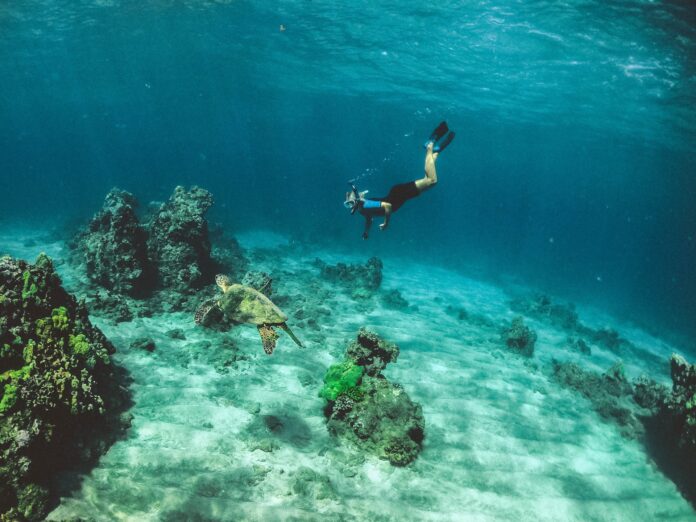If you love the underwater world and dream about exploring it in all its glory, you may have heard about two options: Snorkeling and Scuba Diving. Whether you’ve experienced one or not, you’ll naturally consider which is the best option.
The straight answer is that it’s not so simple. It depends upon you, your expectations, your physical capability, and your mental fortitude.
Snorkeling is swimming just beneath the surface of the water. It’s done with the help of a mask and a special breathing tube called the snorkel. It gives you a top-down, panoramic point-of-view without diving into the depths.
Scuba diving is the opposite of snorkeling. You’ll dive deep into the waters, which can only be achieved through using a specific breathing apparatus for underwater usage called scuba.
Both of these adventures will get you under the oceans, and you’ll be able to observe and be bewildered seeing the marine life, the reefs, and a whole new world under the waters. It’s a memory that will be carved into your brain forever.
Here are 3 main aspects that you should consider according to your preference and abilities to decide which scuba diving or snorkeling is the better option for you.
1. Equipment
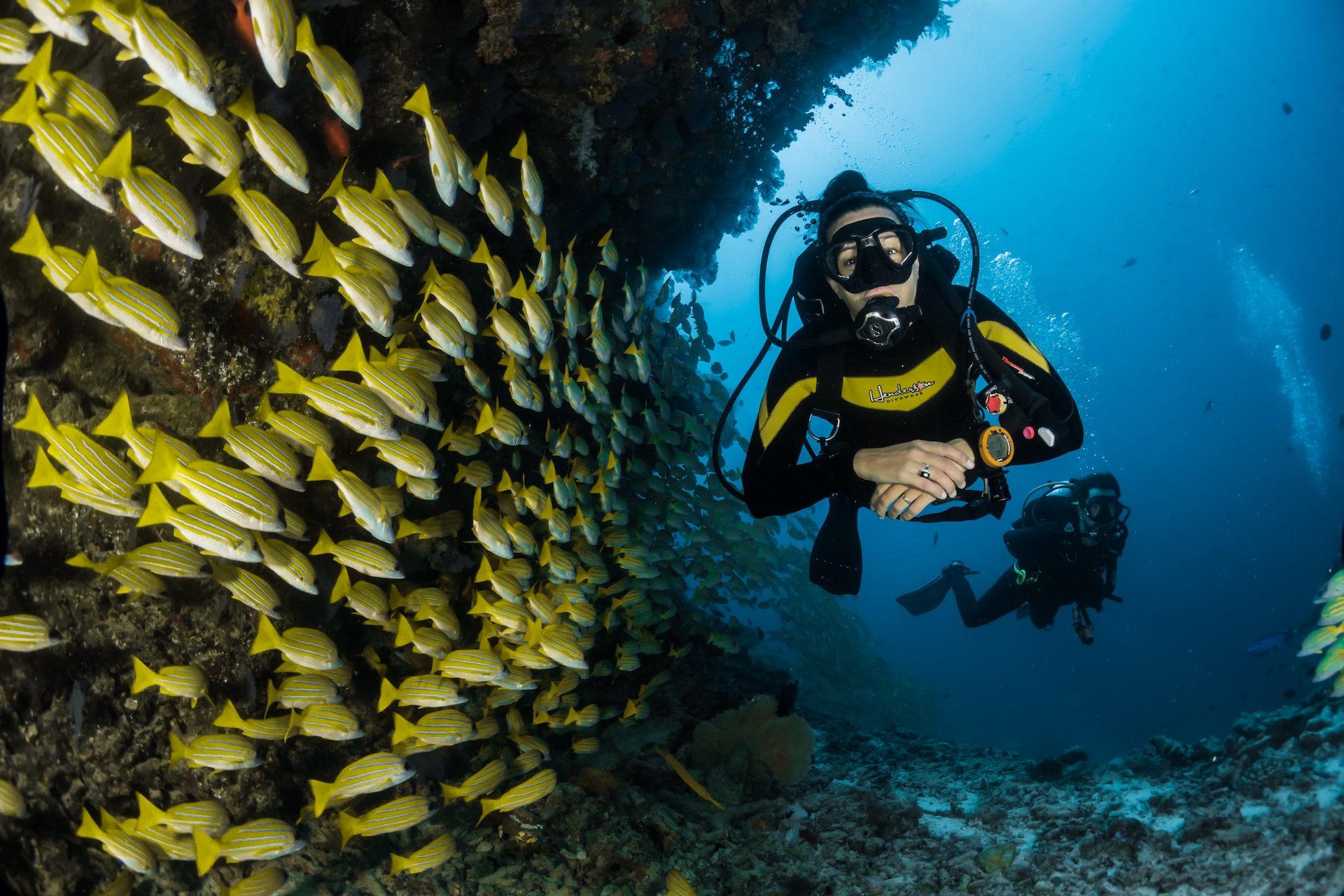
Now, to enjoy snorkeling, you need a mask that covers the eyes and the nose at least and a snorkel tube that’ll let you breathe. That’s the bare minimum. Then, you can go for other additional accessories like rash guards and fins. These niceties are your choice completely.
A basic mask and a snorkel for beginner level can be easily grabbed for 40-60 dollars. That’ll give you pretty decent gear. After gaining some experience and building a love for the waters, you can upgrade to intermediate-level gear that can boost your performance. But, again, it’ll cost you something around 60-150 dollars.
And finally, when you develop a deep passion for it, you’d naturally want the best-in-class equipment. You’ll need to shell out 150-200 dollars for the advanced equipment. If you just want the equipment temporarily to test out the sport, then you can pick up rental ones for 10-15 dollars each day or 30-40 dollars every week.
You can also try refillable and easily portable cylinders at https://scorkl.com/, which can give you 10 minutes of sheer underwater thrill. Again, these are gifts from modern science.
On the other hand, you’ll need a much bigger investment upfront regarding scuba equipment. At a bare minimum, you’ll need a mask, snorkel, scuba tank with filled air, fins, breathing regulator, dive weights, and a buoyancy compensator. Most tend to opt for a dive skin or wetsuit and a dive computer for safety purposes. So, just for basic scuba gear, you’ll need 2000 dollars at least.
There are renting options, but even those will be a bit expensive compared to snorkeling. The general rent goes around 40-60 dollars for a day and 125-200 dollars for the whole week.
2. Certification
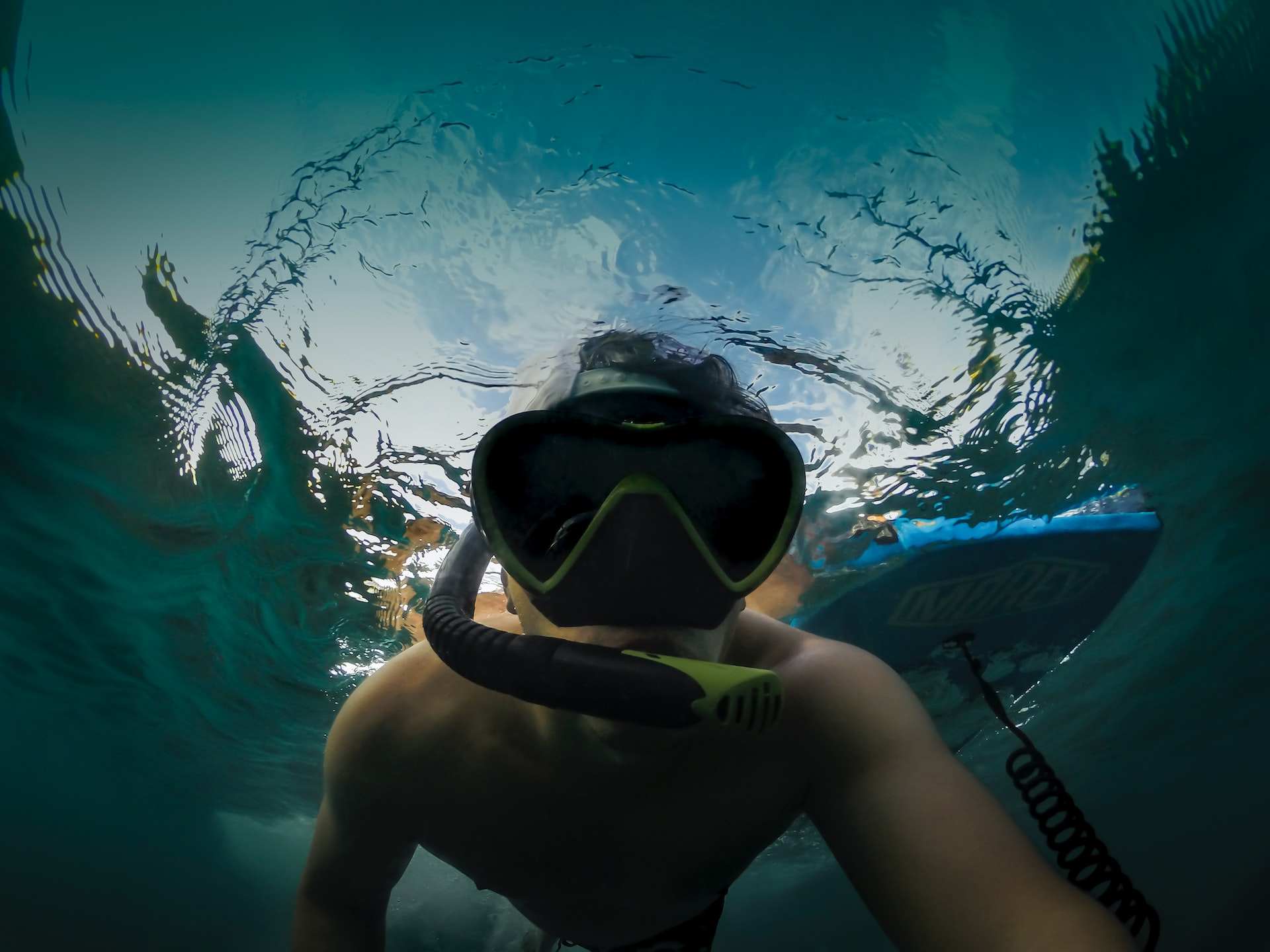
Another thing that you have to consider is certification. In the case of snorkeling, you don’t need any certificate to get in the water with a professional group.
But scuba diving is not that simple. There are a couple of certification levels for scuba diving. The initial one is the open-water certification which consists of a book course and various components. This is generally done in a pool.
And then the advanced level of certification is the open-water test that requires you to go to the ocean, and you’ll be examined by an instructor who’s certified to do this kind of testing.
3. Level of difficulty
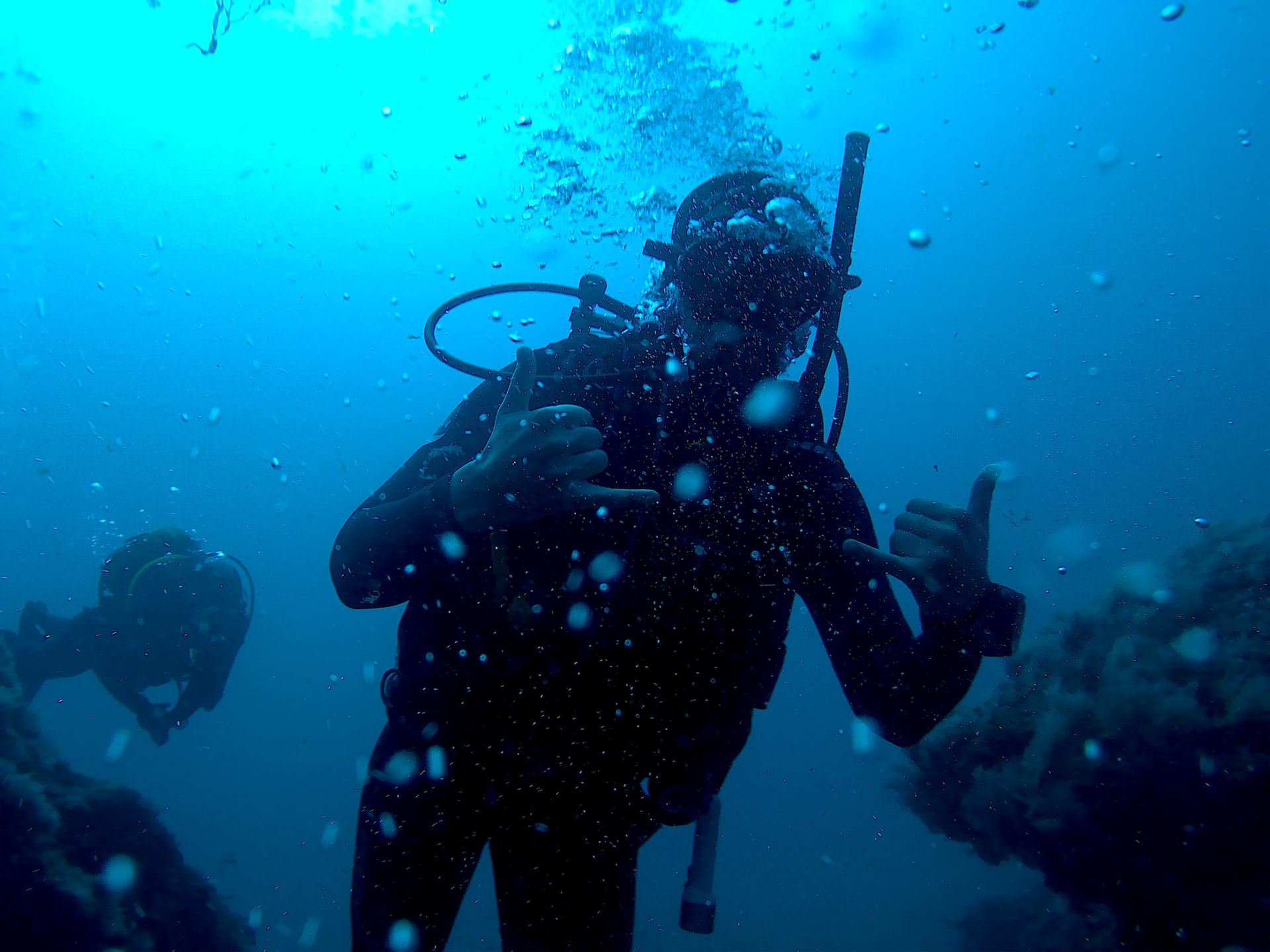
There are specific techniques to be learned for both scuba diving and snorkeling. And it becomes essential as your desire to get better drives your progress.
In the case of snorkeling, it all comes down to swimming. You just need to swim beneath the water surface and keep the snorkel peeking up from the water. If you’re a decent swimmer, the hardest part about snorkeling is already done.
As your passion deepens, you can consider challenging yourself and practicing various techniques like holding your breath for a longer period of time; that’ll give you a chance to get a bit deeper. Then, you can just make a dive and then come back to the surface. You just need to stay afloat, and that’s it.
Scuba diving is a bit more complex. The equipment is intricate, which automatically takes time to get used to. It would help if you learned to read the snorkel tanks and their markings, the amount of air left in them, and the procedure to activate and connect the tanks to stop any unwanted mishap. You’ll also need to learn to understand the dive computer to handle your depth and the total time spent on any level.
You need to learn to control your emotions and limitations. You should have a gut feeling about how deep you’re comfortable going and how long you can be there. Also, scuba sign language can be helpful for easy communication with other divers.
These are all contingency plans as scuba diving gets you deep inside the waters, and even a minuscule mistake can prove fatal.
Generally, scuba diving is a lot more difficult. With all the certifications, safety requirements, and learnings, it needs much more practice before starting.
4. Underwater experience
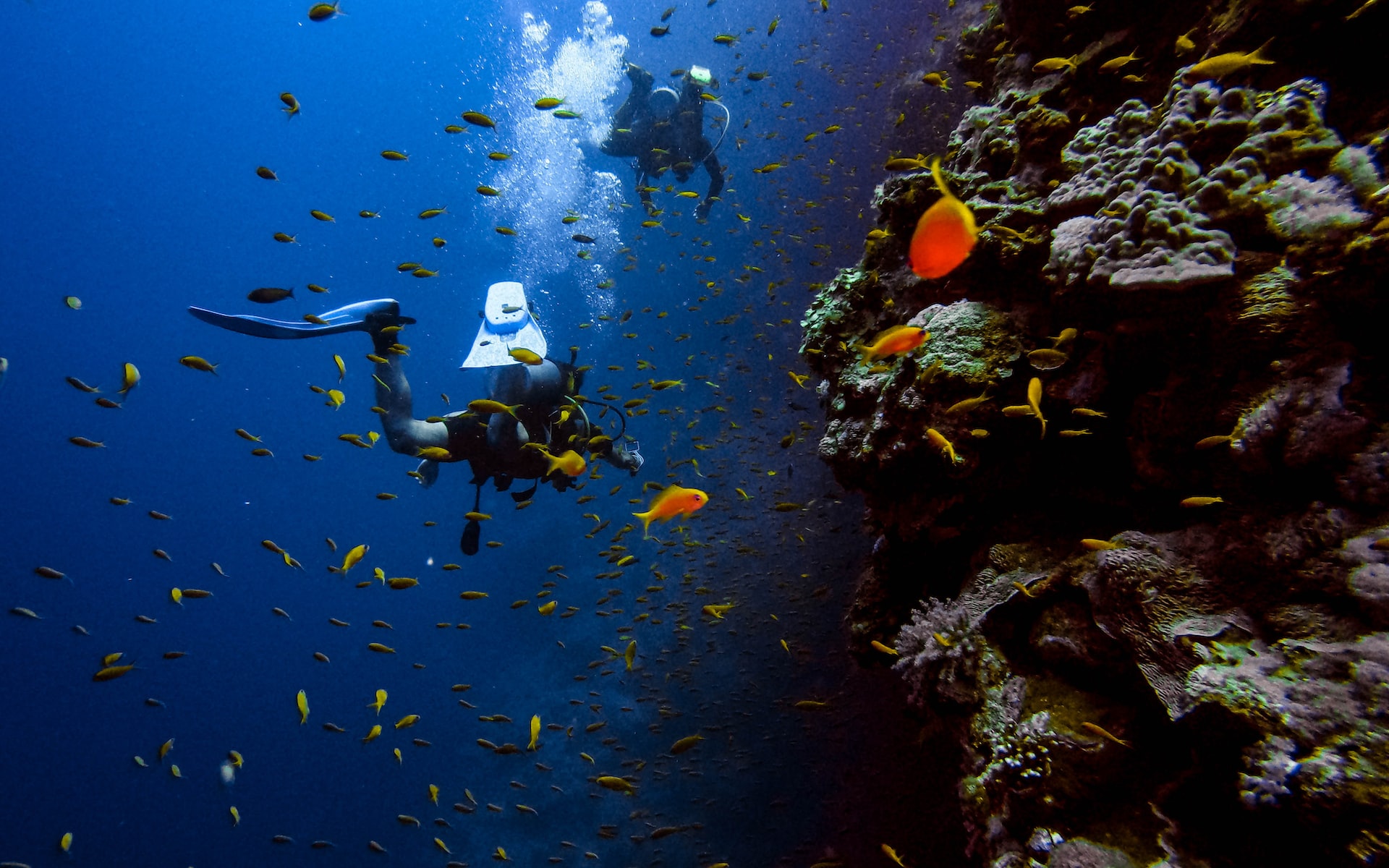
Both scuba diving and snorkeling are experiences for a lifetime. You’ll get to see and experience marine life in a way that’s astounding for most of us. And all those coral forests and hoards of fishes of every possible color and size make these things both adventurous and life-affirming simultaneously.
But the two of them do things in their own separate ways. Snorkeling is limited to the surface level, and only after gaining enough experience can divers dive deeper and spend a bit of time nearer the underwater life. It gives you a high seat to enjoy the top-down point of view of all that’s going on deep inside the oceans.
Scuba diving starts off extreme compared to that. It’s long and extensive, but it doesn’t just let you be an audience; instead, you become a part of the aquatic ecosystem. You can become a part of nature; you can feel how much there is that we don’t know anything about. The experience can be meditative.
CONCLUSION
It’s meaningless to argue about which is better. You should instead decide what’s better for you.
Snorkeling would be right up your alley if you have a tight budget or don’t want to invest too much time for the majestic experience.
But if you want to feel a part of the mystic waters and all its residents, and if the thrill of the adventure pales in comparison to the costs of the expensive equipment, all the tests, and training, then scuba diving is your answer to the call of the wild.

